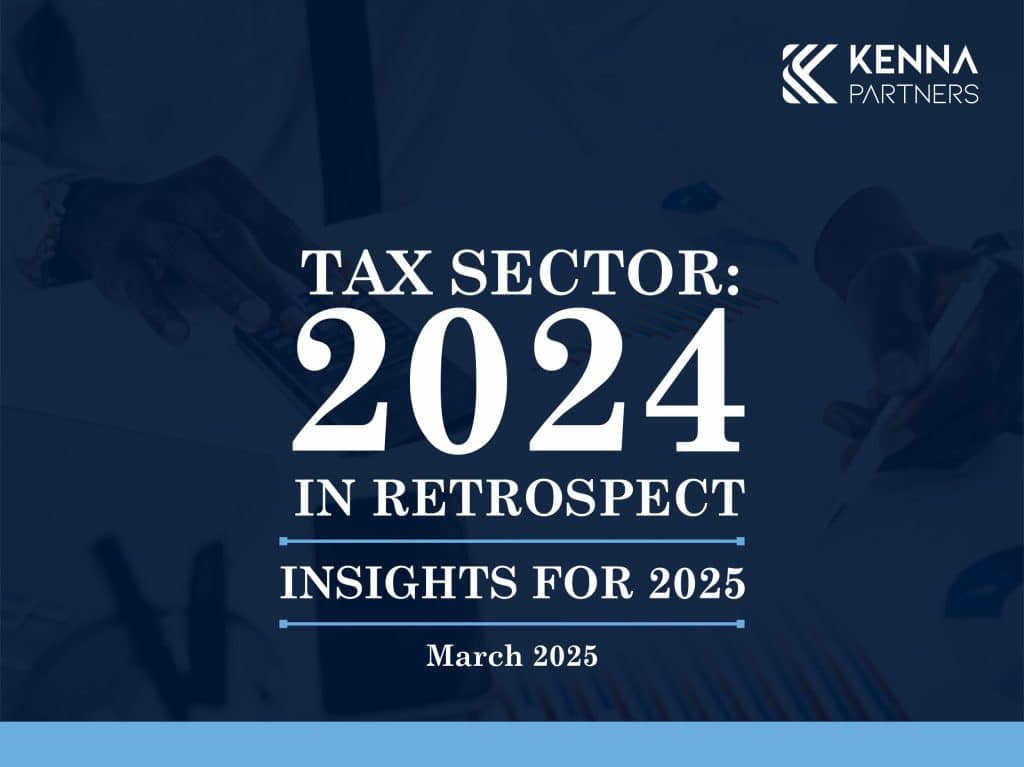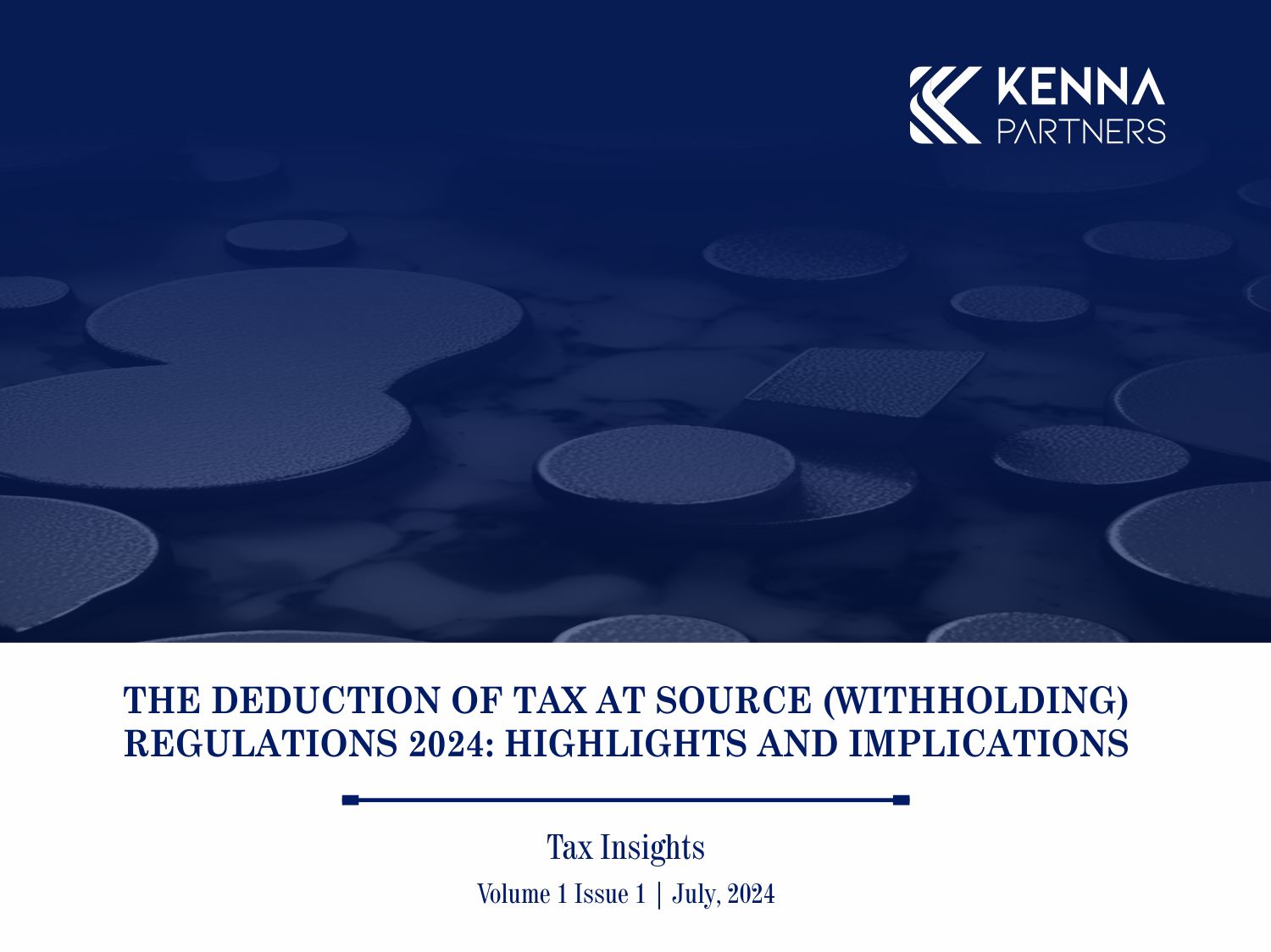Tax Sector: 2024 in Retrospect, Insights for 2025

Table of Contents
- Loading table of contents...
Introduction
The 2024 tax and fiscal landscape saw a combination of new legislative initiatives, amendments to existing tax laws, and fiscal policies aimed at boosting government revenue, while addressing public expenditure needs. These developments underscore the Nigerian government’s continued efforts to diversify revenue streams and reduce reliance on oil by increasing non-oil tax collection.
In August 2023, President Bola Ahmed Tinubu inaugurated the Presidential Committee on Fiscal Policy and Tax Reforms (“the Committee”) with a mandate to enhance fiscal governance, drive revenue transformation, and facilitate economic growth. A key focus of the Committee was to introduce a single-digit tax regime by pruning the existing taxes to a total of nine (9) taxes. Further to its mandate, the Committee embarked on extensive public consultations, discussions, and engagements, which led to the implementation of several significant reforms by the Federal Government.
For instance, the Federal Government signed the Value Added Tax (Modification) Order, 2024 on September 1, 2024, which introduced VAT exemptions for businesses involved in the production and sale of Compressed Natural Gas (CNG), Liquefied Petroleum Gas (LPG), and Electric Vehicles (EV) in Nigeria. Furthermore, amendments to existing tax laws and new tax bills are pending before the National Assembly to be passed into law.
In 2024, there were tax incentives targeted at small and medium enterprises (SMEs) and businesses to stimulate economic growth. The Federal Government also ramped up efforts to close tax loopholes and curb tax avoidance and evasion by leveraging technology, such as the FIRS Tax Pro-Max Platform to improve tax collection efficiency and the USSD code to enhance seamless tax payments.
In this edition of our tax newsletter, we examine some of the key developments in Nigeria’s tax landscape, including groundbreaking judicial decisions and legislative and regulatory changes in 2024. Additionally, we spotlight upcoming tax events that may benefit stakeholders. Finally, we provide a forward-looking analysis of the 2025 tax outlook based on current trends and ongoing issues reforms.
Our newsletter is divided into six sections. Part A covers recent updates in the tax sector. Part B focuses on recent legislative developments. Part C highlights recent judicial decisions. Part D outlines publications of Kenna Partners’ Tax unit. Part E highlights upcoming events in the tax sector. Finally, Part F addresses our projected outlook for 2025.
News Updates
FIRS introduces USSD Code to improve tax payment in Nigeria
On October 16, 2024, the Federal Inland Revenue Service (FIRS) launched a USSD code, *829#, to enhance the ease of doing business and improve taxpayer satisfaction in Nigeria. The initiative was unveiled during the FIRS’ Customer Service Week.
Federal Executive Council approves Economic Stabilisation Bill
The Federal Executive Council (FEC) approved the recommendations of the Presidential Committee on Fiscal Policy and Tax Reforms contained in the Economic Stabilisation Bill, which has been transmitted to the National Assembly to be passed into law. The Bill seeks to amend various taxes, fiscal, and establishment laws to facilitate economic stability, set the country on the path for sustained inclusive growth, and promote electronic transactions.
Federal Government removes VAT on Diesel, LNG, CNG, and Electric Vehicles
In a statement issued by the Minister of Finance and Coordinating Minister of the Economy, Mr Wale Edun, on October 3, 2024, the Federal Government announced that it had exempted VAT for Compressed Natural Gas (CNG), Liquefied Natural Gas (LNG), and Electric Vehicles (EVs) in Nigeria. The exemption was introduced through the VAT (Modification) Order 2024 and aims to reduce the cost of living, enhance energy security, and accelerate Nigeria’s shift to cleaner energy sources.
Approval of the implementation of import duty and VAT waiver on basic food Items
On August 14, 2024, the Federal Government approved a zero-duty rate and VAT exemption on essential food items starting from July 15, 2024, to December 31, 2024. This measure was introduced to address the continued rise in inflation on staples and other essential food items.
House of Representatives pass tax reform bills for second reading
The House of Representatives on February 12, 2025, passed the four Tax Reform Bills – the Joint Revenue Board of Nigeria (Establishment) Bill 2024, the Nigeria Revenue Service (Establishment) Bill 2024, the Nigeria Tax Administration Bill 2024, and the Nigeria Tax Bill 2024 for a second reading after a long debate on the floor of the House and the controversies surrounding the Bills.







